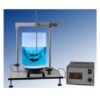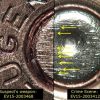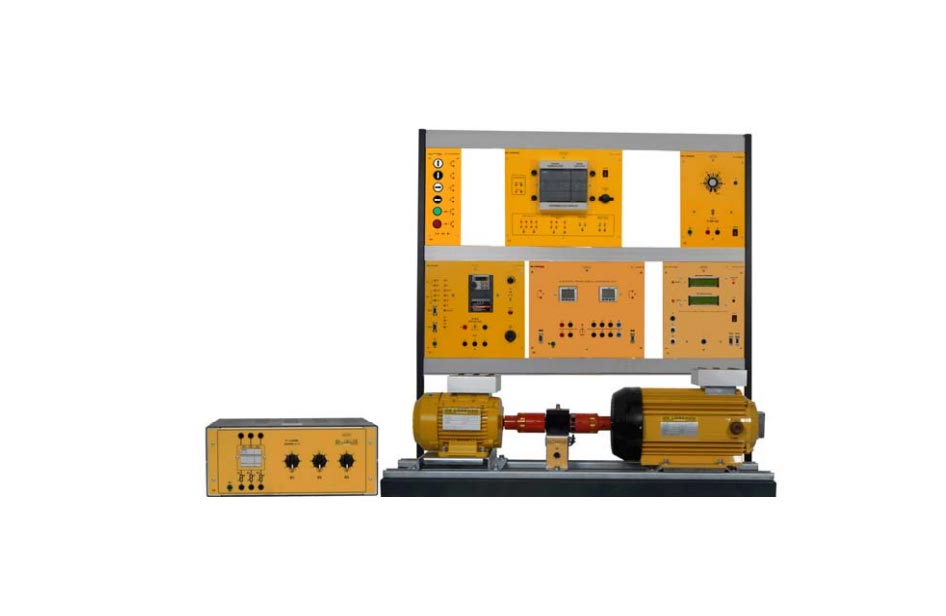The PLCs are the control devices used in automation systems with dedicated software so that they are capable of being programmed to perform corresponding control operations and they are widely used in industrial control and can operate at industry environment conditions.
The PLC monitors the motors operation and correlates the parameters according to the developed software.
The performance of the induction asynchronous motor can be tested in two different modes:
• fed by the inverter and PLC (with high accuracy in speed regulation and load operation)
• or fed by the inverter only
The De Lorenzo’s electric machines bench (with the help of a PLC) has been designed to satisfy the following basic requirements:
• The number of groups of students who must work simultaneously
• The available space of the working area
• The plan activities
• The economic advantage
The characteristic key of this bench is its total modularity which means:
• to couple machines (motor and alternator) with the modules fixed on the frame (Inverter, PLC, instruments, etc.)
• to be able to buy the bare essentials
• to configure complete solutions without creating duplication of equipment
The didactic advantage is to be able to investigate the behavior of each module making part of this bench that assumes the following configuration:
• autonomous basic bench, with inverter and DC power supply able to provide the necessary voltages and digital measurement units in order to perform a complete course of measurements on all modules making part of this bench
• universal base, to secure the machines which can be mounted directly on the bench in front of the modules and the instrumentation assembled on the frame
• tools and various accessories to be able to make any test on this bench
The machines are built for continuous operation and withstand an overload of about 20÷30% even for long duration.
Moreover, the machines are built with great care and they have such low losses that could be classified as real text machines.
The bench is equipped with an exhaustive instruction manual and thus it can be considered a theoretical and practical “textbook”.
Ultimately this bench allows measuring, through direct methods, the mechanical characteristics (torque and speed) and the electro‐mechanical characteristics (torque, speed, input current, efficiency and power factor as a function of the output power).
The bench also includes digital measurement modules with the possibility to acquire data through MODBUS interface and the use of a processing and acquisition software.
EXPERIMENTS
The experiments that can be performed are:
• Study and parametrization of a three‐phase inverter
• Study and configuration (HW/SW) of a PLC
• Starting of an electrical machine fed by a three‐phase inverter
• Starting of an electrical machine fed by a three‐phase inverter and a PLC
• Study and analysis of the mechanical power
• Study of a three‐phase synchronous generator
BENCH FOR THE STUDY OF THE MOTOR AUTOMATION
The DL MA‐PLC is a multipurpose bench that allows to learn the PLC programming techniques in order to control an electrical machine driven by an inverter.
It is composed of a three‐phase asynchronous motor, a three‐phase alternator, a PLC, an inverter, a resistive load, a power supply and modules for measuring the electrical and the mechanical powers.
















